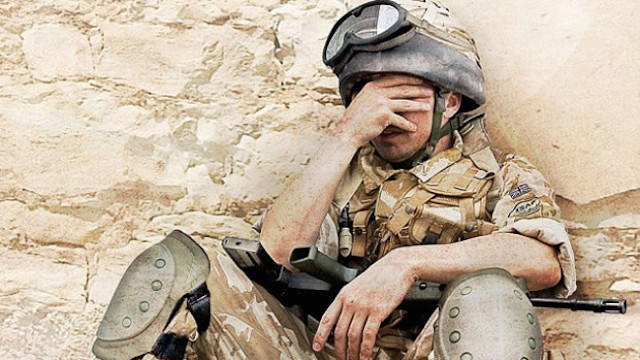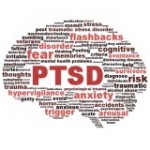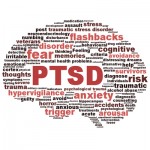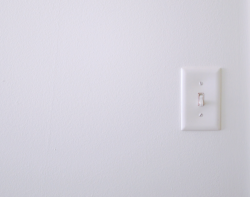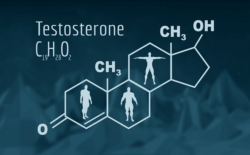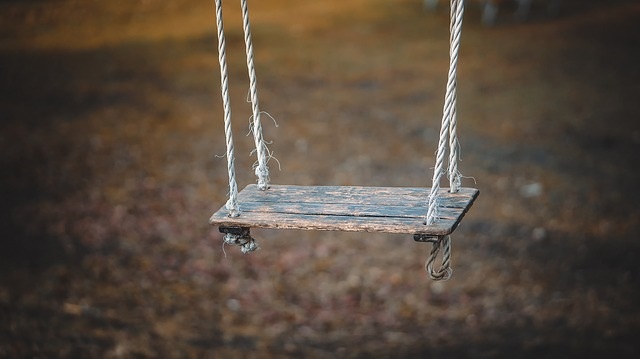Recently, Hormones Matter published a piece about Helping a Loved One Suffering from Post-Traumatic Stress Disorder. The author offers some good advice in the piece, but I am somewhat concerned with the accidental implications of one section of the article. The longest individual section specifically highlights the dangers of veterans with PTSD to friends and family, describing it at length.
As a veteran with PTSD I’d like to take a moment to put this section in perspective. The impression it leaves is that veterans with PTSD are likely to be a potentially deadly threat to those near at hand. I’m sure that was not the author’s intention, but the suggestion is there nevertheless. Unfortunately, the popular view agrees with this sentiment, leading to significant issues with stereotyping that hinders, rather than aids, PTSD sufferers.
Violence in America
To best put this into perspective, we need to first establish a baseline. According to the FBI Uniform Crime Reports, 1,163,146 violent crimes occurred in the United States in 2013. This breaks down to a rate of 367.9 violent crimes per 100,000 inhabitants over the course of the year for a rate of 0.39% per person. Of these crimes, 1.2% (4.4 per 100,000) were murders while 62.3% (229.2 per 100,000) were aggravated assaults. Happily, these numbers are down from the previous year, but that still represents an unpleasant amount of violent crime amongst the general U.S. population.
Violence with PTSD
A paper published last year in the British Journal of Psychology undertook a study of veterans with PTSD, specifically examining the link between these veterans and violence. The study specifically studied over 1,000 veterans, examining the coincidence of violence with PTSD, drug and alcohol abuse, financial factors, and a history of violence prior to entry into the military.
When we look at the veterans examined, some had PTSD and some did not. When factoring for how PTSD impacts crime rates, veterans not suffering from PTSD would represent that general U.S. population mentioned above. The BJP paper, therefore, should tell us how much more violent PTSD sufferers are than the general population by stating how much more likely those diagnosed with it are to act violently than veterans without it.
The conclusion they came to was that PTSD on its own was not a factor. “Compared with veterans with neither PTSD nor alcohol misuse, veterans with PTSD and no alcohol misuse were not significantly more likely to be severely violent.” Veterans who had an alcohol misuse problem, however, were twice as likely to engage in violent behaviors, while those with both PTSD and alcohol misuse were three times as likely. Alcohol, it seems, is a far greater risk factor than PTSD.
This isn’t to say that PTSD doesn’t create anger issues. It most certainly does. However, the likelihood of a veteran with PTSD to lash out because of those anger issues are no higher than the likelihood of anyone else in the general population to lash out.
Stereotypes of Veteran PTSD Stigmatize the Sufferer
Unfortunately, the stereotype of the violent PTSD sufferer is widespread. A quick search online will find numerous headlines reporting on the dangers. Popular media is fond of using what I call the Rambo Effect to sell movie tickets and draw TV viewers. This “if it bleeds, it leads” attitude has a significant effect of stigmatizing real PTSD sufferers.
And that’s where the real problem with the emphasis on “the violent PTSD sufferer” has a very real, and dangerous impact. PTSD sufferers may not be any more violent, but they certainly are more likely to suffer from alcohol and drug abuse, and have higher rates of suicide. (Remember when I mentioned the risk of violence associated with Alcohol misuse? Here’s where that comes into play.)
The incidence of suicide amongst veterans diagnosed with PTSD was roughly two and a half times higher than that for the general population. Alcoholism shows a similarly high rate, as does drug use. PTSD may not be a risk factor for the public at large, but it most certainly is an increased danger to the veteran suffering from it.
Sadly, the stigma of being diagnosed with PTSD means many sufferers won’t seek out help. When being diagnosed is the social equivalent of being declared to be a public menace many veterans choose instead to suffer in silence, engaging in a process of “self-medication” that only worsens the symptoms and which too often lead to suicide as the means of escape.
Getting Help for a Vet with PTSD
If you are a family member of someone with PTSD it is important to remember that treatment is important. Yes, there are veterans with PTSD that truly are a threat, just there are members of the general populace who are a threat. If your veteran is one of them, do protect yourself. But don’t assume that because your veteran has PTSD you are in any greater danger than you would be otherwise. Such an assumption, and the behavior it drives, will only further convince the veteran in question that admitting to having PTSD will result in their suffering from a stigma that won’t ever go away.
Instead, be supportive. Take the time to learn about PTSD. Get into the research to find out the treatments that are available and what you can do to support your veteran’s fight against PTSD. Connect with the Veteran’s Administration, the VFW, or the American Legion to learn the best ways to encourage your veteran to seek help.
If your vet has sought help, be an active supporter. Spend some time with the mental health specialist helping your service member and find out what you specifically can do to help with your service member’s specific needs. If your service member has been prescribed medications to treat symptoms, spend time with a medication therapy management specialist to learn about potential side effects and the best times and methods to take the medications, or learn about alternatives if the current medications aren’t working out. If they are struggling with a substance abuse problem, do what you can to help them recover.
You are an important part of your family member’s fight with PTSD. You can help a great deal with it. But believing that your veteran is more dangerous to you than anyone else solely on the basis of a PTSD diagnosis is not helpful. It’s counterproductive. Don’t buy the hype, be a key to the solution. You can help. But you have to be there to do it.



